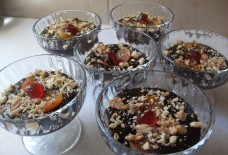Ana Dammi Falastini: A National(izing) Anthem

By Luke McMahan / Arab America Contributing Writer
The war rages on, dozens perish every day, and an occupation begun nearly eight decades ago ruthlessly confines the dream of Palestinian statehood to a cramped, dirty cell in the Negev desert. Since the Nekba, Palestinian artists have grappled with their displacement, alienation, and violence in several ways, most famously the poets of resistance such as Mahmoud Darwish and Samih Al-Qasim.
But in contrast with their intricate metaphors and eloquent meditations, casting light upon the inner turmoil of Palestinians, another artist several decades later has crafted a different kind of piece born of the occupation and the continued fight for self-determination: Mohammed Assaf’s “Ana Dammi Falastini.” It reads as a modern national anthem, but as it is written for those without a state, it becomes a nationalizing song spurring the struggle for statehood while cementing and asserting the presence of a Palestinian identity that continues to be undermined by its oppressors.
Assaf and collaborators create a song at once innately Palestinian and comprehensible to a wide audience. This is important not only to draw in those without Palestinian identity to their cause but also, as so many Palestinians have settled around the world after the beginning of the occupation, creating any song of unity must symbolically and directly overcome geographic, linguistic, and other obstacles to Palestinian identity.
The catchy, oft-repeated chorus, translated as “my blood is Palestinian,” does just that: it asserts the biological depth of the Palestinian lineage to those who deny its existence. In fact, in Modern Standard Arabic, “Dammi Falastini” is sufficient for the sentence’s meaning, but the “ana,” which means “I,” intensifies the individual’s personal relation to their identity. Essentially, the title translates to, “I am my Palestinian blood.”
In addition to the chorus and repetition of the word “Palestinian,” the song sonically relates heritage through traditional instruments and dance to modernity. The song’s several breakdowns align with the quick pace of the dabke, Palestine’s national dance, particularly the basic one-and-a-half (“Wahid wa nisf”) step. These breakdowns also feature the arghul, a traditional reed instrument of the Levant. Much of the song’s beats are processed drums and claps, giving the listener the feel of a live dabke performance produced by a modern studio. Without any understanding of Arabic, a listener can certainly feel the intense energy of this song and grasp its general idea: an energetic celebration and assertion of Palestinian identity.
While several goals of Assaf’s song are comprehensible to any listener, the lyrics further stand to elevate the Palestinian homeland and the decades-long struggle for it. He effectively says this identity may not have complete geographical actuality now but is still entirely physical. This celebration of tradition, lineage, and values is an assertion of a Palestinian nation and an attempt further to nationalize its many displaced members under the same banner. Its modern production and take on identity also look to the future, reassuring countrymen in their continued quest for self-determination by highlighting what they are fighting for and what they have to already celebrate and depend upon.
Twice, he compares Palestine to his mother, which continues the familial theme of the song as well as follows a tradition of Arab writers referring to their homeland as a woman, as Darwish and Qasim did in decades past. This is due to the majority of countries in Arabic being feminine grammatically.
The lyrics again make strides to formulate a national identity personally (moral code) and even a bit geographically (mentioning Jerusalem). For the former, he honors the individual struggles of Palestinians worldwide by mentioning the values of bravery, purity, and self-sacrifice and places those experiences in the center of a national identity. But unlike other Palestinian songs in the same realm, “Ana Dammi Falastini” does not mention the occupation or any conflict specifically, if anything, only implicitly. Thus, the song acts more as a national anthem than many others of its kind.
“Ana Dammi Falastini” has enjoyed significant popularity and is Assaf’s most famous work. He gained prominence after winning the second season of Arab Idol. In 2013, the aid organization UNRWA, now considered a terrorist group in Israel, named the singer a goodwill ambassador and Palestinian President Mahmoud Abbas granted him special diplomatic status along with a culture ambassadorship.
Assaf is continuously vocal in protesting Israel’s occupation. Thus, controversy arose when “Ana Dammi Falastini” was removed from Spotify in 2021 during protests over Israel’s eviction of several families from Sheikh Jarrah. Assaf says the song was pulled due to its subject matter over the regional conflict, as there was a relatively popular petition to remove any anti-Israel song from streaming services. However, Spotify maintains that the decision lies with the distributor. Regardless, “Ana Dammi Falastini” gained even more traction with Palestinian supporters. And with its nationalizing efforts to strengthen thousands around a Palestinian identity, “Ana Dammi Falastini” may just be the closest thing to a modern Palestinian national anthem.
Song:
Sources:
https://lyricstranslate.com/en/dammi-falasteeni-دمي-فلسطيني-my-blood-palestanian.html
https://www.aljazeera.com/news/2023/5/24/why-was-a-palestinian-song-removed-from-spotify
https://genius.com/artists/Mohammed-assaf
Check out our blog here!








